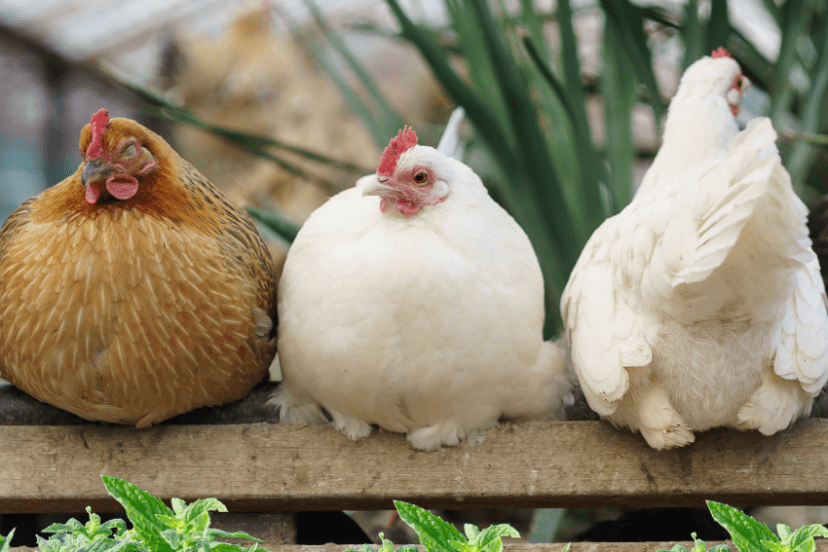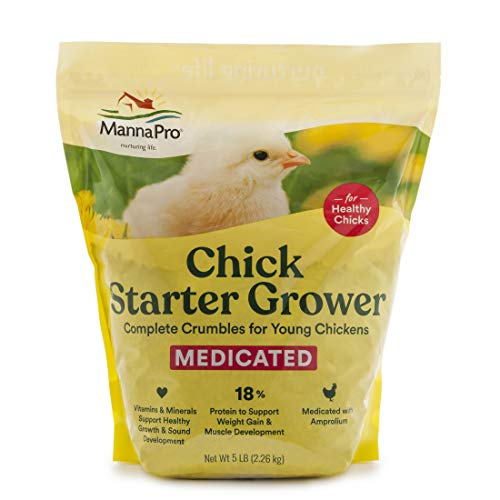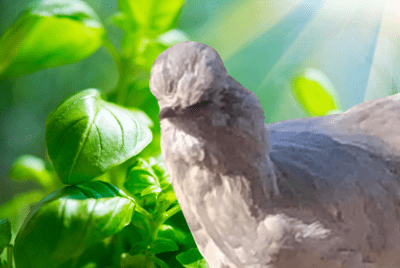Unleash the Power of Lemon Balm in Your Coop!
There’s a hidden gem in your backyard waiting to calm, heal, and protect your flock – lemon balm. Dive into the world of this fragrant herb and discover how it can revolutionize your poultry farming experience. From natural insect repellent to stress-relief for your feathered friends, learn how to harness the power of lemon balm for a healthier, happier coop. I have found that lemon balm is to chickens like catnip is to cats. Calming and relaxing to be around. If you have flighty chickens grow some lemon balm and keep it around them.
Key Takeaways:
- Natural Stress Relief: Lemon balm can help reduce stress and anxiety in your chickens, creating a more peaceful coop environment.
- Antibacterial Properties: This herb has antibacterial properties that can help maintain the health of your flock and prevent illnesses.
- Insect Repellent: Lemon balm can act as a natural insect repellent, keeping pests away from your chickens and coop.
- Enhanced Egg Quality: By adding lemon balm to their diet, chickens may produce eggs with improved taste and nutritional value.
- Easy to Grow: Lemon balm is easy to grow in most climates and can be a low-maintenance addition to your coop or garden.

The Benefits of Lemon Balm
While many people are aware of the delightful fragrance and calming properties of lemon balm for humans, its benefits extend to our feathered friends as well. Lemon balm, also known as Melissa officinalis, can be a fantastic addition to your chicken coop for various reasons.
Calming Effects on Chickens
Lemon balm can have a soothing effect on chickens, helping to reduce stress and anxiety in your flock. By simply adding fresh lemon balm leaves to their coop or nesting boxes, you can create a more peaceful environment for your chickens. This herb is known for its mild sedative properties, which can be especially beneficial during times of high stress, such as introducing new birds to the flock or during extreme weather conditions.
Natural Pest Control
Control of pests in a chicken coop is vital for the health and well-being of your birds. Lemon balm contains natural compounds that act as insect repellents, helping to keep pests such as mosquitoes, flies, and mites at bay. For instance, planting lemon balm around the coop or using it as a bedding material can help to deter insects, creating a more comfortable living space for your chickens.
Improved Egg Production
Any backyard chicken owner knows the importance of consistent egg production. Lemon balm has been found to have a positive impact on egg-laying in chickens. By including lemon balm in your flock’s diet or allowing them to forage on fresh lemon balm leaves, you may see an increase in the number of eggs laid by your hens. The natural properties of lemon balm can help to regulate hormones and reduce stress, two factors that can contribute to improved egg production.
Effects of lemon balm on chickens can be truly transformative, providing a range of benefits from calming effects to improved egg production. By harnessing the power of this fragrant herb in your coop, you can create a healthier and happier environment for your feathered companions.
How to Grow Lemon Balm in Your Coop
Choosing the Right Variety
On the journey to cultivate lemon balm in your coop, selecting the right variety is crucial. There are several options available, each with its unique attributes. For coop planting, Melissa officinalis, commonly known as common lemon balm, is the preferred choice due to its strong lemon scent and rapid growth.
Soil and Climate Requirements
The soil and climate play significant roles in the successful growth of lemon balm in your coop. This herb thrives in well-draining, loamy soil with a slightly acidic to neutral pH. Lemon balm also prefers a sunny location but can tolerate partial shade.
The key to cultivating thriving lemon balm plants is to ensure that the soil is consistently moist but not waterlogged. Additionally, lemon balm is resilient to various climates, making it an ideal addition to your coop environment.
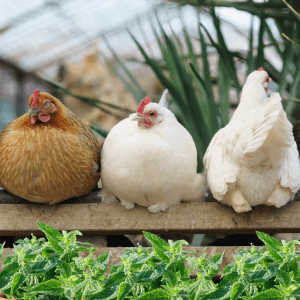
Planting and Maintenance Tips
With proper planting and maintenance, lemon balm can flourish in your coop and benefit both your chickens and yourself. When planting lemon balm, make sure to space the seeds or seedlings about 12 to 24 inches apart to allow for adequate growth.
- Regular watering and pruning are important to keep the lemon balm healthy and prevent it from becoming invasive. Prune the plant regularly to encourage bushier growth and remove any dead or damaged leaves.
- Assume that lemon balm will spread quickly, so it’s important to monitor its growth and contain it if needed to prevent overcrowding in the coop.
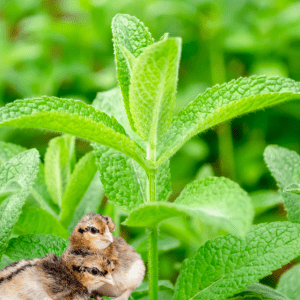
Incorporating Lemon Balm into Your Chicken’s Diet
Fresh Leaves vs. Dried Herbs
Keep in mind that using fresh lemon balm leaves in your chicken’s diet can provide more potent benefits compared to using dried herbs. Fresh leaves contain higher levels of necessary oils and nutrients that can support your flock’s health and well-being. Additionally, the vibrant flavor of fresh lemon balm may be more enticing for your chickens, making it easier to incorporate into their diet.
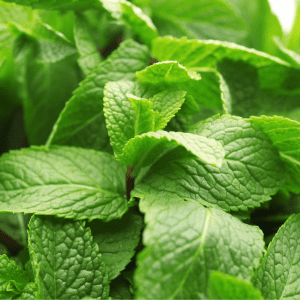
Feeding Methods and Dosage
When incorporating lemon balm into your chicken’s diet, consider chopping the fresh leaves and mixing them with their regular feed. You can also offer the leaves separately as a snack for your flock to peck at. Dosage can vary depending on the size of your flock, but a handful of fresh lemon balm leaves per chicken a few times a week can be a good start.
Feeding fresh lemon balm leaves to your chickens can provide a natural source of vitamins, minerals, and antioxidants that support their immune system and overall health. As with any new addition to their diet, it’s important to monitor your chickens’ response to ensure they are tolerating the herb well.
Combining with Other Herbs for Optimal Health
Your chickens can benefit from a combination of herbs in their diet to support their overall health and well-being. Consider mixing lemon balm with other beneficial herbs like parsley, oregano, or basil to create a nutrient-rich blend for your flock. This combination can provide a range of health benefits and add variety to their diet.
Leaves of lemon balm have calming properties that can help reduce stress in your chickens, while other herbs like oregano have antimicrobial and anti-inflammatory effects. By combining these herbs, you can create a well-rounded diet that promotes optimal health for your flock.
Lemon Balm as a Natural Remedy
Your chickens’ health and well-being are of utmost importance when raising them in your coop. Lemon balm, with its numerous beneficial properties, can be a valuable natural remedy to have on hand for your feathered friends. From soothing skin irritations to reducing stress and anxiety, lemon balm can help support your chickens’ overall health.
Soothing Skin Irritations
Soothing skin irritations is an important aspect of chicken care. Lemon balm possesses anti-inflammatory and antibacterial properties that can help calm irritations and promote healing. Whether your chickens have scratches, pecking wounds, or dry skin, applying a lemon balm salve or adding it to a soothing bath can provide relief and support their skin health.

Reducing Stress and Anxiety
Reducing stress and anxiety in chickens is crucial for maintaining their well-being. Lemon balm is known for its calming effects and can help alleviate stress in your flock. Whether they are experiencing environmental changes, predator threats, or simply need a mood boost, incorporating lemon balm into their environment or diet can help them feel more at ease.
Plus, lemon balm’s pleasant aroma can create a soothing atmosphere in your coop, benefiting both you and your chickens.
Supporting Respiratory Health
One lesser-known benefit of lemon balm is its ability to support respiratory health in chickens. Respiratory issues can be common in poultry, especially in enclosed coop environments. Lemon balm’s antimicrobial properties can help combat respiratory infections and promote healthy breathing in your flock.
Supporting your chickens’ respiratory health with lemon balm can contribute to their overall well-being and vitality, ensuring they lead a happy and healthy life in your coop.
DIY Lemon Balm Products for Your Coop
Not only is lemon balm a wonderful herb for humans, but it can also be incredibly beneficial for your chickens. By harnessing the power of lemon balm, you can create DIY products to enhance the health and well-being of your flock.
Herbal Teas for Chickens
With the calming properties of lemon balm, you can create herbal teas for your chickens to enjoy. Simply steep fresh lemon balm leaves in hot water and let it cool before offering it to your flock. The antioxidant and antibacterial properties of lemon balm can help boost the immune system of your chickens and promote overall health.
Lemon Balm Infused Oils and Salves
An crucial addition to your chicken first aid kit is lemon balm-infused oils and salves. By infusing lemon balm leaves in carrier oils like coconut or olive oil, you can create a soothing balm for treating minor cuts, scrapes, and skin irritations in your chickens. Lemon balm contains anti-inflammatory and antiseptic properties that can aid in healing and prevent infection.
To further enhance the healing properties of the salve, you can add other chicken-safe herbs like calendula or comfrey. Apply the lemon balm-infused salve topically to your chicken’s skin as needed.
Homemade Chicken Feed Supplements
The nutrient-rich qualities of lemon balm make it an excellent addition to homemade chicken feed supplements. You can dry lemon balm leaves and mix them with other herbs like oregano, thyme, and parsley to create a custom blend that can be added to your flock’s feed. Lemon balm can help improve digestion, reduce stress, and boost the overall health of your chickens.
The key is to introduce the lemon balm supplements gradually and observe how your flock responds. Watch for any signs of improvement in appetite, egg production, or feather quality to gauge the effectiveness of the homemade feed supplements.
Common Questions and Concerns
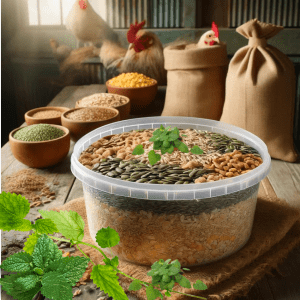
Will Lemon Balm Attract Pests?
Now, you might be wondering if adding lemon balm to your coop will attract pests. Lemon balm is actually known for its pest-repelling properties. Its strong lemon scent can deter insects and rodents, making it a great natural option for keeping pests at bay in your chicken coop.
Can I Use Lemon Balm with Other Medications?
The use of lemon balm alongside other medications for your chickens can sometimes be a concern. If you are considering using lemon balm in conjunction with other medications, it is always best to consult with a veterinarian or poultry health expert. They can provide guidance on any potential interactions and ensure the health and well-being of your flock.
The key is to always be cautious when introducing new substances into your chicken’s environment. By seeking professional advice, you can ensure that the use of lemon balm is safe and beneficial for your feathered friends.
How Long Does It Take to See Results?
Will using lemon balm in your coop lead to immediate results? The effectiveness of lemon balm can vary depending on the issue you are addressing. In some cases, you may see improvements relatively quickly, while in others, it may take some time for the benefits to become noticeable.
It’s important to monitor the health and behavior of your chickens regularly to gauge the impact of lemon balm. With consistent use and observation, you can determine if lemon balm is making a positive difference in your coop.
Concerns: While lemon balm can offer many benefits for your chickens, it’s important to be mindful of their overall health and well-being. Always use caution when introducing new elements into their environment, and consult with experts if you have any concerns about the use of lemon balm alongside other medications or supplements.

Conclusion
To wrap up, incorporating lemon balm into your coop can provide a multitude of benefits for both your chickens and yourself. From its insect-repelling properties to its calming effects on poultry, lemon balm is a versatile herb that can enhance the health and well-being of your flock. By planting lemon balm in and around your coop, you can create a natural and effective way to improve the overall environment for your chickens.
FAQ
Q: What is lemon balm and how can it benefit my coop?
A: Lemon balm is a fragrant herb known for its calming properties that can help reduce stress in chickens. Placing lemon balm in your coop can create a soothing environment for your flock.
Q: How do I introduce lemon balm to my chickens?
A: You can scatter fresh or dried lemon balm leaves in the coop, hang bunches of lemon balm from the ceiling, or sprinkle dried lemon balm in nesting boxes for your chickens to enjoy.
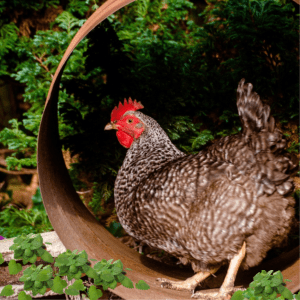
Q: Are there any health benefits of using lemon balm in the coop?
A: Lemon balm has natural antibacterial and antiviral properties that can help keep your chickens healthy. It also acts as a natural insect repellent, keeping pests away from your coop.
Q: Can lemon balm help improve egg production in chickens?
A: While lemon balm is not a direct stimulant for egg production, creating a stress-free environment with the help of lemon balm can help chickens feel more comfortable and potentially boost egg laying.
Q: How do I harvest and dry lemon balm for use in my coop?
A: To harvest lemon balm, cut the stems in the morning when the oils are at their peak. Hang the stems in a warm, dark, and well-ventilated area to dry. Once dried, crumble the leaves and store them in an airtight container for use in the coop.

